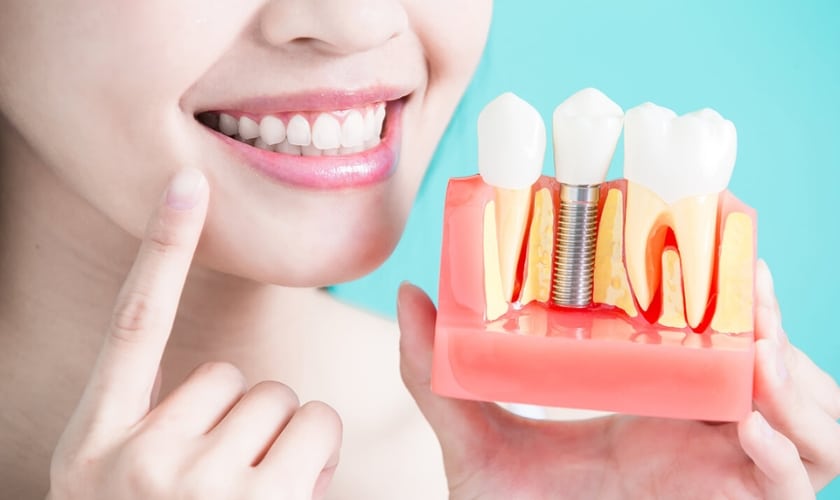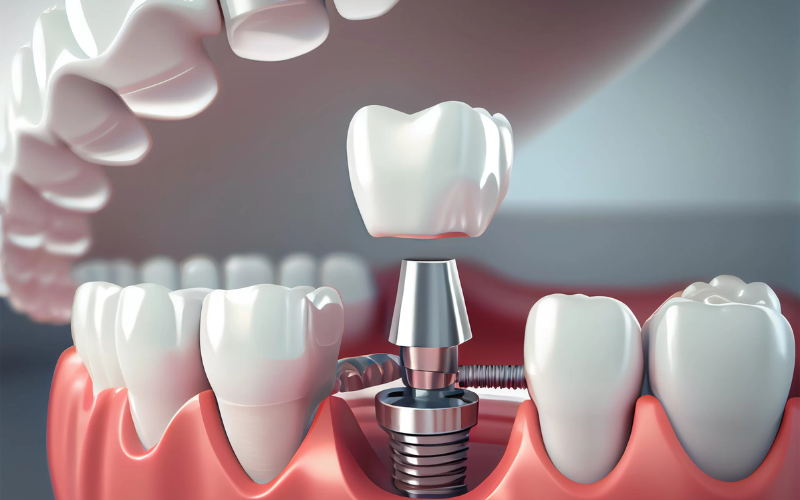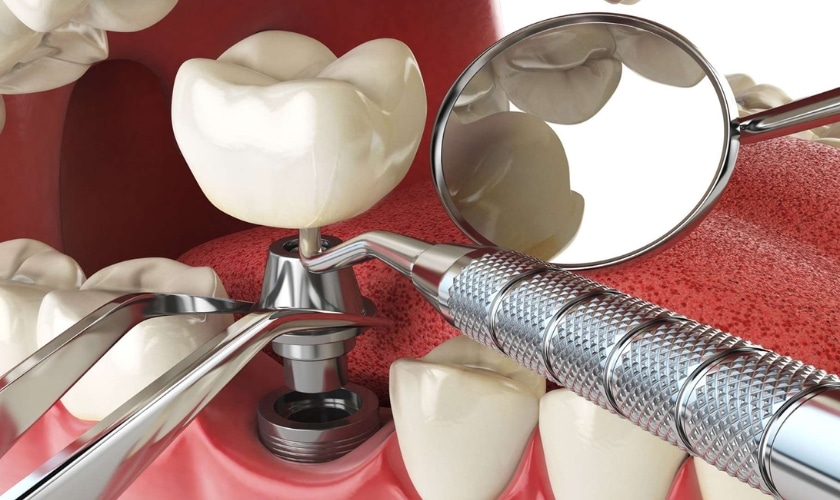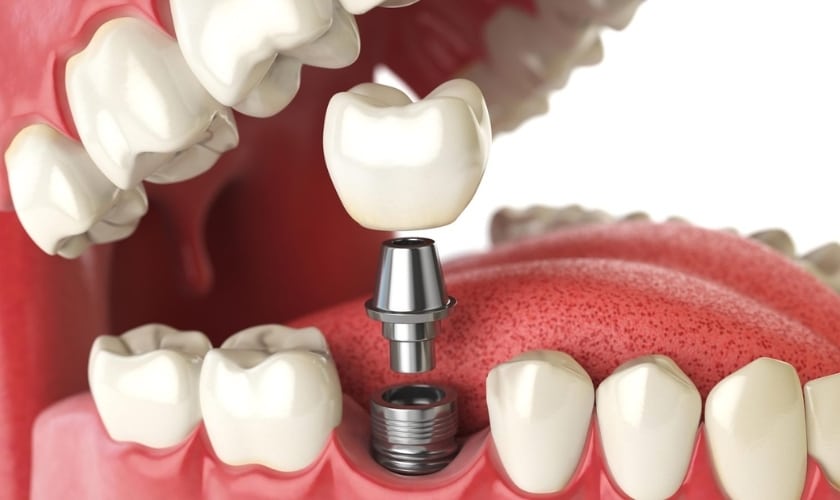
In the realm of modern dentistry, dental implants have revolutionized the way we address tooth loss. These artificial tooth roots provide a sturdy foundation for replacement teeth, offering a long-lasting solution to restore both function and aesthetics. However, as time passes, a question looms over those who have undergone this transformative dental procedure – can dental implants get infected years later? In this blog, we will embark on a journey to unravel the mysteries surrounding the longevity of dental implants and the potential risks they may face over time.
Understanding Dental Implants
Dental implants, often hailed as the gold standard for tooth replacement, are more than just artificial teeth. To truly grasp their significance, let's delve deeper into the intricacies of these titanium marvels.
Dental implants are typically crafted from medical-grade titanium due to their biocompatibility and ability to fuse seamlessly with bone tissue. The design is meticulous, mimicking the root structure of natural teeth, ensuring stability and support for the replacement crown.
Unlike traditional tooth replacement options, such as dentures or bridges, dental implants play a unique role in preserving the jawbone structure. The stimulation provided by the implant during activities like chewing helps prevent bone loss, maintaining the integrity of the facial structure.
The Initial Healing Phase
The initial healing phase after dental implant placement is a critical period that lays the foundation for the long-term success of the procedure. Understanding this phase in detail helps patients navigate through the post-surgical journey with confidence and awareness.
Osseointegration Timeline: The primary focus during the initial healing phase is the process of osseointegration, where the implant fuses with the jawbone. This integration typically takes several months, varying from patient to patient.
Post-Operative Care: Immediately after implant surgery, meticulous post-operative care is paramount. Patients are often advised to follow specific guidelines provided by their dental professionals, including:
– Proper oral hygiene practices
– Dietary restrictions
– Prescribed medications to prevent infection and promote healing
Temporary Restorations: In some cases, temporary restorations may be placed during the healing phase. These provisional teeth serve both aesthetic and functional purposes. Also, it allows patients to maintain normal daily activities while the implants undergo osseointegration. It's essential to handle these temporary restorations with care and adhere to any usage restrictions provided by the dentist.
Potential Causes of Infection Years Later
While dental implants are celebrated for their longevity and success rates, it's crucial to acknowledge the potential risks that may emerge in the later stages. Identifying these factors and understanding how to mitigate them can significantly contribute to the continued health of your dental implants.
Late-Onset Gum Disease (Peri-implantitis)
Years after the initial implant procedure, individuals may develop a condition known as peri-implantitis. This is akin to gum disease but specifically affects the tissues surrounding the dental implant. Poor oral hygiene practices, neglecting regular dental check-ups, and a history of gum disease can increase the risk of peri-implantitis, potentially leading to infections.
Insufficient Oral Hygiene Maintenance
Over time, complacency with oral hygiene practices can become a breeding ground for bacteria around dental implants. Inadequate brushing, flossing, and neglecting the use of antimicrobial mouthwash may allow harmful microorganisms to thrive, leading to infections.
Foreign Body Reaction
In rare cases, the body may exhibit a reaction to the presence of the dental implant as a foreign object. This can result in inflammation and, if left unaddressed, may pave the way for infections. Regular monitoring by a dental professional is crucial to identify any signs of adverse reactions.
Implant Overloading
Excessive force or pressure on dental implants, especially in cases of teeth grinding (bruxism) or clenching, can compromise the stability of the implant and surrounding tissues. Over time, this mechanical stress may contribute to the development of infections.
Smoking and Tobacco Use
The detrimental effects of smoking on oral health extend beyond the initial healing phase. Smoking hampers blood flow and impedes the body's ability to fight infections. Additionally, it significantly increases the risk of complications around dental implants even years after the procedure.
Poorly Fitted Restorations
Ill-fitting crowns, bridges, or dentures attached to dental implants can create spaces where bacteria can accumulate. Ensuring that the restorations are well-fitted and regularly checked by a dental professional is vital in preventing infections.
Preventing Infections
Regular Dental Check-ups and Cleanings
Scheduled dental check-ups are your first line of defense against potential infections. Regular visits allow your dental professional to monitor the health of your implants. It also includes identifying early signs of complications and conducting professional cleanings to remove plaque and tartar that could contribute to infections.
Meticulous Oral Hygiene Practices
Consistent and thorough oral hygiene routines are paramount in preventing infections around dental implants. Brushing at least twice a day, flossing daily, and using an antimicrobial mouthwash help remove plaque and bacteria that could lead to peri-implantitis and other infections.
Customized Oral Care Instructions
Dental professionals may provide personalized instructions based on the unique characteristics of your dental implants. This could include specific techniques for cleaning around the implant.
Avoiding Tobacco Products
Smoking and tobacco use have been consistently linked to an increased risk of complications with dental implants. Quitting these habits not only benefits your overall health but significantly reduces the risk of infections and implant failure.
Balanced Diet and Hydration
A well-balanced diet rich in essential nutrients supports overall health, including oral health. Adequate hydration also contributes to the body's natural defense mechanisms. Consult with your healthcare provider or a nutritionist to ensure you are getting the nutrients necessary for optimal healing and immune function.
Proactive Lifestyle Choices
Adopting a proactive approach to your overall lifestyle can positively impact the health of your dental implants. Avoid excessive alcohol consumption, maintain a healthy weight, and manage stress through practices like meditation or yoga. These lifestyle choices contribute to a robust immune system and, consequently, a lower risk of infections.
In the grand tapestry of dental health, dental implants stand as a testament to technological advancements. While the prospect of infections years later exists, the key lies in proactive care. By embracing good oral hygiene practices and making informed lifestyle choices, individuals can safeguard their dental implants, ensuring a radiant smile that stands the test of time. Remember, the journey to a lasting, infection-free smile begins with the commitment to comprehensive oral care.




